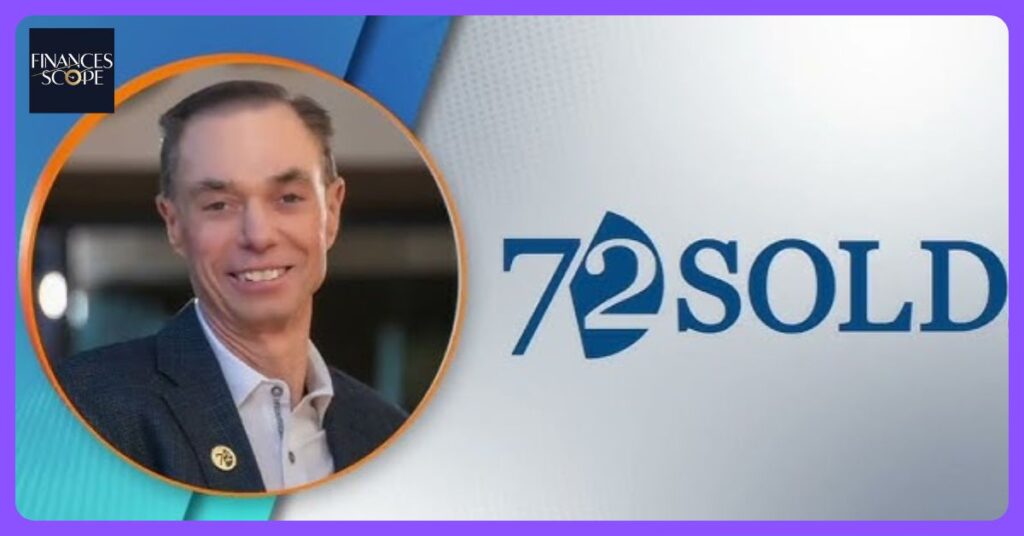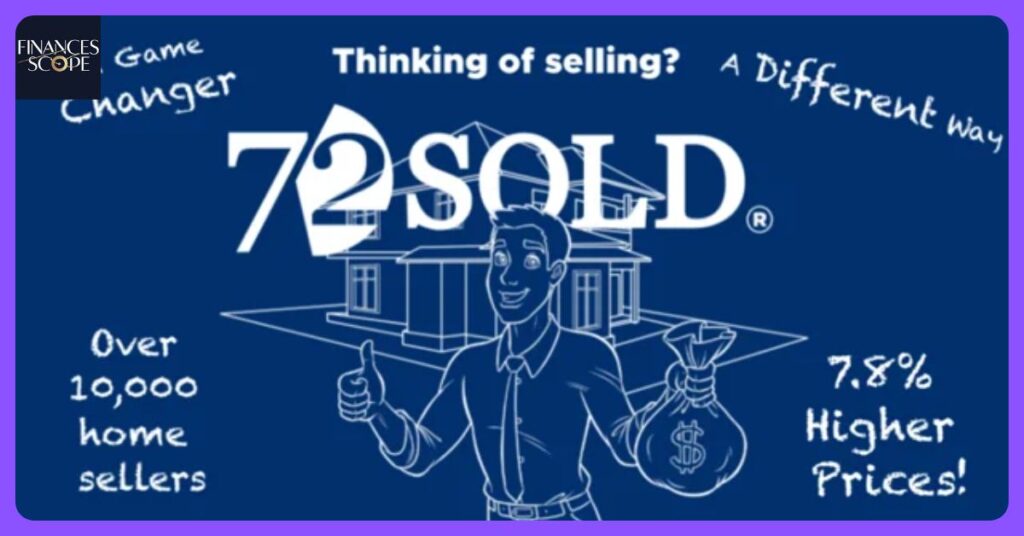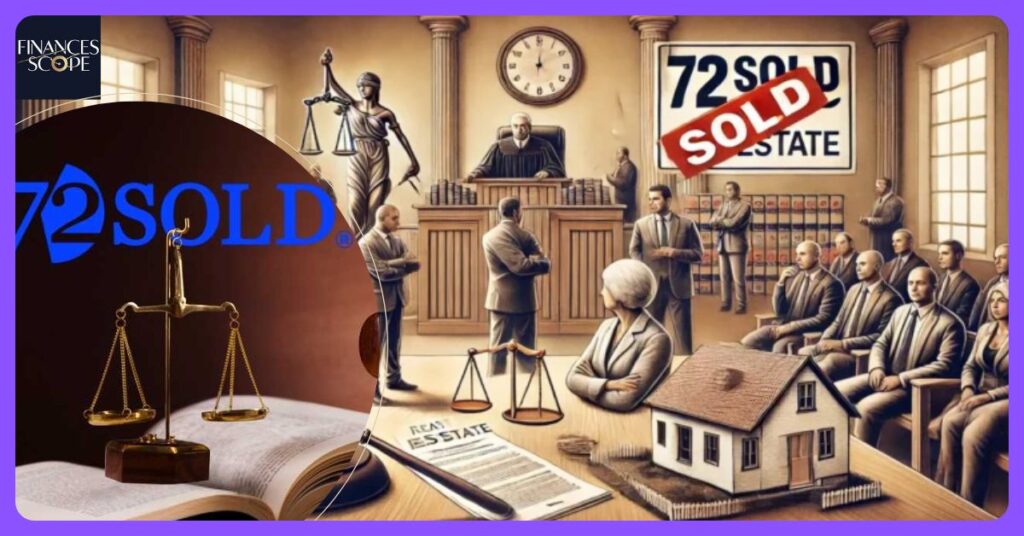The real estate industry is constantly evolving. New companies emerge with innovative ideas to streamline the home selling process. One such company, 72 Sold, promised a revolutionary approach.
They claimed to sell homes in just 72 hours. This bold promise caught the attention of many homeowners. However, it also led to controversy and legal challenges.
The 72 Sold lawsuit has become a hot topic in real estate circles. It raises important questions about fast-sale programs and consumer protection. This article aims to provide a clear understanding of the lawsuit.
Overview Of The 72 Sold Program
72 Sold entered the market with a unique proposition. They promised to sell homes in just three days. This was a stark contrast to traditional methods.

The company used an auction-like approach to create urgency. They would heavily market a property for a short period. Then, all interested buyers would submit offers on a specific date.
The program appealed to homeowners who wanted a quick sale. It promised to avoid long waiting periods and multiple showings. 72 Sold partnered with established real estate brokerages. This gave them credibility and a wide network.
Importance And Impact Of The Lawsuit
The lawsuit against 72 Sold is more than a simple legal dispute. It represents a crucial moment in real estate sales practices. The outcome could shape how homes are bought and sold in the future.
It challenges the ethics and legality of fast-sale programs. This legal action has sparked a broader conversation about transparency. Real estate professionals are closely watching the proceedings.
They recognize that the outcome could influence future regulations. For homeowners, it serves as a cautionary tale. It highlights the importance of due diligence when considering alternative selling methods.
Background Of 72 Sold
72 Sold is a real estate company founded in Arizona. They offer a quick-sale model for homeowners. The company promises to sell homes in 72 hours.

Their approach differs from traditional real estate methods. 72 Sold expanded rapidly across multiple states. They gained attention for their unique selling proposition.
Description Of The Company And Its Business Model
72 Sold was founded with an ambitious goal. They wanted to revolutionize home sales. The company’s core promise was speed and efficiency. They claimed to sell homes in just 72 hours.
This was a dramatic departure from traditional methods. The company’s approach was straightforward. They would heavily promote a property for about a week.
During this time, potential buyers could view the home. Then, on a set date, all interested parties would submit their offers. This auction-like strategy aimed to create competition among buyers.
Key Figures Involved In 72 Sold
At the helm of 72 Sold is Greg Hague. He is a veteran of the real estate industry. Hague brought decades of experience to the company.
His vision for 72 Sold was born from a desire to address inefficiencies in traditional home selling. The leadership team included experts in various fields. They had professionals in marketing, technology, and legal compliance.
Another important figure is Gary Keller, co-founder of Keller Williams Realty. While not directly involved in operations, his company was a major brokerage partner for 72 Sold.
Read This Blog: Understanding Your Legal Options: Navigating Concord Asbestos Legal Questions
Allegations Against 72 Sold
72 Sold faced accusations of misleading practices. Some clients claimed they were not fully informed.

The company’s advertising methods were questioned. There were concerns about property valuations. Complaints emerged about high fees charged. The allegations led to public scrutiny of the company.
Misleading Advertising Practices
One of the main allegations against 72 Sold involves their advertising. Critics claim the company used misleading tactics to attract homeowners. The central issue is the promise to sell homes within 72 hours.
Many homeowners reported that their properties remained unsold long after this timeframe. Plaintiffs argue that 72 Sold’s marketing materials were overly optimistic. They claim the ads failed to disclose potential risks and limitations.
This includes the possibility that homes might not sell quickly or at the expected price. The company’s use of success stories has also come under scrutiny. Critics argue these testimonials presented an unrealistic picture. They claim 72 Sold cherry-picked its best outcomes for promotional purposes.
Hidden Fees And Undisclosed Costs
Another major allegation involves hidden fees and undisclosed costs. Many homeowners claim they were surprised by unexpected expenses. One common complaint is about marketing fees. While 72 Sold promoted potential savings on commissions, some users reported high charges for marketing services.
There are also issues with the structure of commission fees. Some homeowners allege that the calculation method was not clearly explained. This led to situations where sellers paid more in total fees than expected.
Unexpected closing costs are another point of contention. Plaintiffs argue that 72 Sold did not adequately prepare them for all associated expenses. Some homeowners reported being charged for services they didn’t request or need.
Pressure Tactics On Homeowners
The lawsuit also alleges that 72 Sold used pressure tactics on homeowners. Critics claim that company representatives often pushed for quick decisions. One complaint is about the rushed nature of the process. Homeowners allege they had very little time to consider offers or understand terms.
There are claims about high-pressure sales techniques during initial consultations. Some homeowners felt pressured to sign up without reviewing all options. Another issue is the handling of offers. Plaintiffs claim 72 Sold representatives often pushed them to accept early offers quickly.
Critics argue these tactics were problematic given the financial implications of home sales. They contend that homeowners needed more time to carefully consider such significant transactions.
Legal Proceedings And Current Status
Legal action was initiated against 72 Sold. Investigations began to examine the company’s practices.

Court proceedings are currently underway. The company is defending itself against the claims. Evidence is being gathered and reviewed. The final outcome of the case is still pending.
Overview Of The Legal Actions Taken
The legal actions against 72 Sold began as individual complaints. These soon coalesced into a more organized challenge. The primary action is a class-action lawsuit filed on behalf of multiple homeowners. This consolidates similar complaints into a single, stronger case.
The lawsuit was filed in federal court. This reflects the interstate nature of 72 Sold’s operations. It also suggests the case has broad implications beyond state lines. In addition to the class action, there are reports of individual lawsuits in various states.
The legal actions primarily allege violations of consumer protection laws. This includes claims of false advertising and unfair business practices. Some lawsuits also include allegations of breach of contract and fiduciary duty.
Several state real estate commissions have launched investigations. These are separate from the civil lawsuits but could lead to regulatory actions.
Current Status Of The Lawsuit
As of now, the 72 Sold lawsuit is in its early stages. The legal proceedings are ongoing. Both sides are engaged in building their cases. One key development is the certification of the class action. This means the court has agreed the lawsuit can represent a large group of homeowners.
The discovery phase is currently underway. This is where both sides gather and exchange information. It includes documents from 72 Sold and testimonies from executives and homeowners.
There have been several preliminary hearings. These have dealt with issues like the scope of the lawsuit and admissible evidence. The court has also considered motions from both sides.
72 Sold has publicly stated they believe the allegations are without merit. They maintain that they operate in compliance with all laws and regulations. The company has assembled a team of defense attorneys to respond to the legal challenges.
Implications For Homeowners

Homeowners who used 72 Sold may face uncertainty. Some might need to review their property transactions. There could be financial implications for affected clients.
Legal advice may be necessary for some homeowners. Property values might be reassessed in some cases. Homeowners are advised to stay informed about the case.
Potential Outcomes For Affected Homeowners
The lawsuit’s outcome could have significant implications for homeowners who used 72 Sold’s services. If the plaintiffs are successful, affected homeowners might receive financial compensation. This could cover losses from unexpected fees or lower-than-promised sale prices.
There’s also the possibility of policy changes at 72 Sold. The company might be required to alter its business practices. This could lead to more transparent communication about fees and timelines.
For some homeowners, the lawsuit might result in the opportunity to void contracts with 72 Sold. This could be relevant for those still in the process of selling their homes through the company.
It’s important to note that legal proceedings can be lengthy. Homeowners involved in the lawsuit may need to be patient. Any potential compensation or changes could take time to materialize.
Recommendations For Homeowners Considering Similar Programs
The 72 Sold lawsuit offers valuable lessons for homeowners considering fast-sale programs. Here are some key recommendations:
- Research thoroughly: Investigate any company’s track record before committing.
- Read the fine print: Carefully review all contract terms, especially regarding fees and timelines.
- Seek independent advice: Consult with a real estate attorney or independent realtor.
- Be wary of pressure tactics: Take time to make decisions about such significant transactions.
- Compare options: Look at traditional selling methods alongside fast-sale programs.
- Verify claims: Ask for evidence of success rates and average sale times.
- Understand the market: Know your local real estate market conditions.
- Consider alternatives: Explore other quick-sale options like iBuyers or cash buyers.
Also Read This Blog: Understanding The Christopher McGill Lawsuit: Key Facts And Implications
Impact On The Real Estate Industry
The case has raised concerns in the real estate sector. Other companies are reviewing their own practices.

There may be calls for stricter industry regulations. Consumer trust in quick-sale models could be affected. The industry might see changes in advertising standards. Real estate agents are closely watching for potential impacts.
Potential Regulatory Changes
The 72 Sold lawsuit could lead to significant regulatory changes in the real estate industry. State and federal lawmakers might introduce new consumer protection measures. These could target fast-sale programs and similar innovative real estate services.
There might be stricter disclosure requirements for real estate companies. This could include more detailed explanations of fees, timelines, and potential risks. Advertising standards for real estate services might also become more stringent.
Regulators might implement new oversight mechanisms for companies offering alternative selling methods. This could involve regular audits or more frequent reporting requirements.
There’s also potential for changes in licensing requirements for real estate professionals. This might include additional training on ethical practices and transparent communication.
Increased Scrutiny Of Real Estate Technology Platforms
The lawsuit has drawn attention to the broader landscape of real estate technology platforms. These “PropTech” companies, which use technology to streamline real estate transactions, may face increased scrutiny.
Investors and venture capitalists might become more cautious about funding real estate startups. They may require more robust proof of ethical practices and sustainable business models.
There could be a push for more standardization in the industry. This might include efforts to create common guidelines for fast-sale programs and other innovative real estate services.
The lawsuit might also spur technological developments aimed at increasing transparency. This could include blockchain-based systems for tracking real estate transactions or AI-powered tools for analyzing contract terms.
Frequently Asked Questions
What is the 72 Sold program?
72 Sold is a real estate program that claims to sell homes within 72 hours using an auction-like approach.
What are the main allegations in the lawsuit against 72 Sold?
The main allegations include misleading advertising, hidden fees, and the use of pressure tactics on homeowners.
How might this lawsuit affect homeowners who used 72 Sold’s services?
Affected homeowners might receive compensation, see policy changes, or have the opportunity to void contracts.
What should homeowners consider before using fast-sale programs?
Homeowners should research thoroughly, read all terms carefully, and seek independent advice before committing.
How could this lawsuit impact the broader real estate industry?
The lawsuit could lead to new regulations, increased scrutiny of real estate technology platforms, and changes in industry practices.
Conclusion
The 72 Sold lawsuit represents a critical moment in the evolution of real estate practices. It highlights the tension between innovation and consumer protection. The case raises important questions about transparency, ethical sales practices, and the responsibilities of companies offering alternative selling methods.
For homeowners, the lawsuit serves as a cautionary tale. It underscores the importance of due diligence when considering any real estate transaction. The case also emphasizes the need for clear communication and full disclosure in all property sales.

Marcus Delgado is a certified financial planner with expertise in retirement strategies and tax optimization.
With a background in economics and a passion for helping individuals achieve financial freedom, Marcus provides practical advice on long-term wealth building and smart money management.












